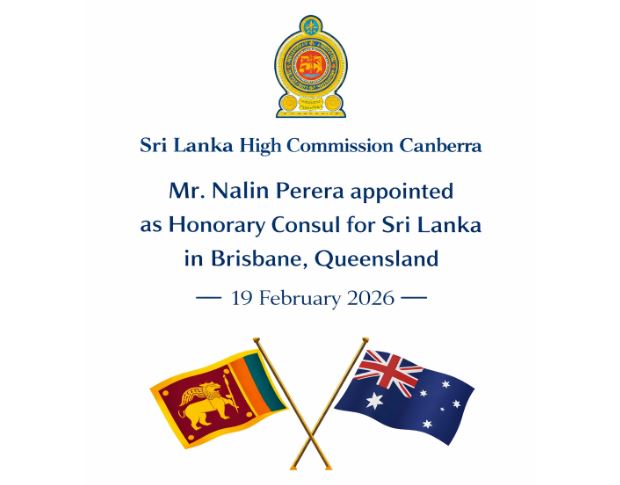May Day: A celebration of work-BY PRAMOD DE SILVA

Source:Sundayobserver
Workers around the world celebrate May Day, also known as Labour Day and International Workers’ Day, today. It is a national holiday in more than 80 countries including Sri Lanka and the event is celebrated in some of the most staunchly capitalist countries too. Due to the pandemic restrictions, workers could not celebrate May Day properly during the last two years. This year, with the pandemic on the wane, workers will be able to hold physical (as opposed to virtual) rallies and gatherings.
 This year too is an incredibly challenging year for workers around the world as the pandemic has put paid to millions of jobs worldwide with companies from airlines to clothing chains virtually closing or winding down their operations in the absence of a market. Only some of these jobs have returned as the economy picks up gradually. It is in this context that most countries including Sri Lanka are striving to re-orient their economies to boost local agriculture and other economic sectors so that more jobs can be generated locally. That is one way in which the working class can participate in the process of reviving economies affected by the Coronavirus.
This year too is an incredibly challenging year for workers around the world as the pandemic has put paid to millions of jobs worldwide with companies from airlines to clothing chains virtually closing or winding down their operations in the absence of a market. Only some of these jobs have returned as the economy picks up gradually. It is in this context that most countries including Sri Lanka are striving to re-orient their economies to boost local agriculture and other economic sectors so that more jobs can be generated locally. That is one way in which the working class can participate in the process of reviving economies affected by the Coronavirus.
Fire and hire policie
 Most workers are also fortunate in that the majority of Sri Lankan companies (leave apart the State sector, which anyway offers job security) do not practise hire and fire policies, which would have brought about drastic consequences for workers and their families. This is what has happened in many developed countries, where jobs evaporated virtually overnight as the lockdown began to take effect. Sri Lanka has very stringent labour laws, the value of which we realise in an environment like the pandemic. But to find out where this idea of workers’ rights came from, we have to go back in time to the USA of the 1880s.
Most workers are also fortunate in that the majority of Sri Lankan companies (leave apart the State sector, which anyway offers job security) do not practise hire and fire policies, which would have brought about drastic consequences for workers and their families. This is what has happened in many developed countries, where jobs evaporated virtually overnight as the lockdown began to take effect. Sri Lanka has very stringent labour laws, the value of which we realise in an environment like the pandemic. But to find out where this idea of workers’ rights came from, we have to go back in time to the USA of the 1880s.
The May Day tradition is around 125-years-old, having begun as an agitation campaign against harsh working conditions by workers in the US in 1886. They were demanding a 40-hour working week. The slogan was “eight hours for work, eight hours for rest and eight hours for what you will”.
In the famous 1886 Haymarket incident in Chicago, US, police fire killed several trade union leaders and workers who were engaged in a demonstration seeking better working conditions and fewer working hours. It was usual for employers then to get their employees to work for 16-18 hours a day. It is generally accepted that these events eventually led to the adoption of the 40-hour working week.
First Congress
In 1889, the first Congress of the Second International, meeting in Paris for the centennial of the French Revolution and the Exposition Universelle, following a proposal by Raymond Lavigne, called for international demonstrations on the 1890 anniversary of the Chicago protests. May Day was formally recognised as an annual event at the International’s second congress in 1891. However, the US and Canada now observe the Labour Day in September.
With the establishment of the United Nations, a specialist agency for labour matters, called the International Labour Organization (ILO) was created. In cooperation with Governments around the world, it has evolved Labour Charters honoured by all UN members. This has ensured much better working conditions than the demonstrators of 1886 ever envisaged.
 Sri Lankans have observed May Day for decades. It is a vibrant event with rallies, demonstrations and parades. Over the years, May Day has been transformed into a political event based loosely on the significance of the day for the working class. It has become an opportunity for the political parties to show their grassroots strength and also their affinity to the working masses. Although one can no longer witness the massive May Day rallies of yesteryear, the day has still not lost its significance in our country.
Sri Lankans have observed May Day for decades. It is a vibrant event with rallies, demonstrations and parades. Over the years, May Day has been transformed into a political event based loosely on the significance of the day for the working class. It has become an opportunity for the political parties to show their grassroots strength and also their affinity to the working masses. Although one can no longer witness the massive May Day rallies of yesteryear, the day has still not lost its significance in our country.
Now the focus has shifted firmly towards political propaganda, with workers’ rights and struggles often relegated to the second place. Parties should strive to put the worker first in their rallies and meetings.
In the end, it is very hard to separate the labour movement from politics in Sri Lanka and for that matter, in most other countries. The workers in many organisations are represented by trade unions which are for the most part affiliated to the major political parties. There are some stand-alone trade unions, which find it hard to raise their voice without the backing of a political party.
Sri Lanka has a vibrant trade union sector, especially in the one-million strong government workforce. Most private sector companies generally do not tolerate trade unions, but this is beginning to change. There also are a number of powerful professionals’ trade unions which should essentially be non-political but which have increasingly dipped their toes in political waters.
Most trade unions are well known for making demands from the Government in power. For this reason, many trade unions are nearly always at loggerheads with the Government. Some of the demands are reasonable, but most are not. Sri Lanka’s trade unions have a predilection for demanding higher salaries for their workforce, regardless of the economic situation of the country.
Trade unions should stop the current practice of resorting to strikes at the drop of a hat if their demands are not met. That should be a last resort, to be considered only when negotiations with the authorities fail. They should stop taking the public ‘hostage’ when they strike to win their demands.
But do workers and trade unions pause to think of their obligations to their organisations and to the public? This rarely happens. Work really is a two-way street. This May Day, both employers and employees should thus re-think their obligations in the name of industrial peace.
After all, no investor will like to invest in a country that lacks industrial peace and also political stability. It is therefore essential to keep strikes to a minimum and also ensure stability on the governance front. The political forces in the country should address the current political impasse without delay as it could have severe repercussions on the investment front.
Covid-19 pandemic and consequences
Work itself is an investment in a country’s future, for it is essential for economic growth. But the pandemic has changed the very nature of work and also severely affected sub-sectors such as informal work and Small and Medium Scale Enterprises (SMEs). Some 1.6 billion people in informal work, which is nearly half the global workforce, have become at risk of losing income as a result of the coronavirus pandemic, the International Labor Organisation has estimated.
 This represented nearly four-fifths (76%) of the total 2 billion people in informal work and close to half of the entire workforce, of 3.3 billion people, worldwide. The informal economy refers to jobs which typically have little protection, such as for income in case of sickness or lockdown. The “informal economy” accounts for jobs that are neither taxed nor monitored by Governments, and that make up a huge proportion of developing economies. Some two-thirds of the world’s working people are employed in such “grey market” jobs. Millions of jobs in the global tourism sector were also at risk with the collapse of tourism during the pandemic years. But many of these jobs and self-employment ventures are now getting back on track, giving a boost to the global economy.
This represented nearly four-fifths (76%) of the total 2 billion people in informal work and close to half of the entire workforce, of 3.3 billion people, worldwide. The informal economy refers to jobs which typically have little protection, such as for income in case of sickness or lockdown. The “informal economy” accounts for jobs that are neither taxed nor monitored by Governments, and that make up a huge proportion of developing economies. Some two-thirds of the world’s working people are employed in such “grey market” jobs. Millions of jobs in the global tourism sector were also at risk with the collapse of tourism during the pandemic years. But many of these jobs and self-employment ventures are now getting back on track, giving a boost to the global economy.
Changing nature of work
In the meantime, the very nature of work is changing. The pandemic taught us that it is not strictly necessary to go to office to work. In any case, travelling to work was not possible due to the strict lockdowns in effect. Hence, this gave rise to the concept of Working From Home, abbreviated to WFH. Moreover, the availability of programmes such as Zoom and Slack meant that office meetings and collaborative projects could also be done from home. All you need for WFH is a PC or laptop, a reliable data connection and a willingness to work at home.
There are many advantages of WFH. There is no need to travel to and from office, which leads to a considerable saving in terms of fuel for private cars and bus/train fares for those using public transport. In fact, with the present fuel crisis here and in many other countries, Governments and companies have advocated WFH for at least three days a week. There is also no need to dress up as you can work in your home clothes.
You can set your own time table – studies have shown that employees engaged in WFH are more productive and actually work longer hours than office-based workers. The only disadvantage of WFH, at least in the context of countries such as Sri Lanka and India, are frequent power cuts, though this too can be addressed to some extent by using UPS/inverter devices, battery-powered 4G routers and laptops with sufficient battery power.
But not all jobs can be done through WFH. A nurse cannot possibly WFH. Sanitation workers cannot WFH. There are many other jobs that cannot be done via WFH, including in journalism itself – a war correspondent cannot possibly cover the war in Ukraine from his or her armchair in some other part of the world. This is indeed why those who have to go to work in the conventional sense of the word have to be given all protections, from insurance to PPE.
We must also remember that millions of people around the world are unemployed, including those who have lost their jobs due to the pandemic. Paradoxically, there are many vacancies out there with no takers due to the mismatch between education systems and job market requirements. This lacuna must be addressed to create more job opportunities for youth. This May Day, Governments must not only honour those who work, but also address the grievances of those without jobs. That will be a true celebration of May Day ideals.




















